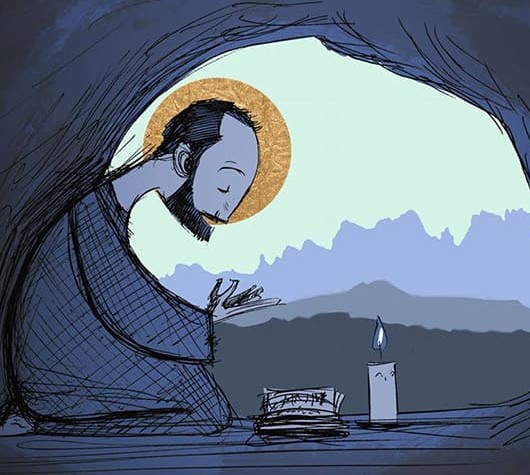
How Fear Threatens Us
I’ve told this story to many people because I think it’s a fascinating illustration of how fear often gets the better of us.
I heard the story from my wife’s, sister who was a lifelong teacher in the beautiful city of Medellin, Colombia. She told it about a fellow teacher and friend who boarded an after-school city bus carrying in her wallet her monthly wages – in cash.
She placed the wallet in her purse, and since a lot of thefts had been reported during this period, the woman was careful to hold on to the purse carefully. She was standing on the bus in the midst of a crowd of passengers, one of whom was a man who seemed too interested in the purse.
A Suspicious Man
Someone rose from a nearby seat and the woman quickly took it, mostly to get away from the suspicious man. But almost immediately, the person in the seat next to her got up to leave and the man immediately took that seat. After a few minutes, the woman nervously checked her purse for the wallet and found none.
So, she pulled out from her purse a fingernail clipper and stuck its little fold-out blade into the man’s side, saying, “the wallet.” The man obliged, and she stuck the wallet in her purse.
The man exited the bus and a few blocks later, so did she. Arriving at home, she checked her purse and found two wallets, hers and the one she inadvertently stole from the man on the bus. (She found his contact info in the wallet and called the man, apologizing profusely, and they became friends.)
Fear, or in this case, what some may call paranoia, can make us do irrational things. And it is especially harmful in the context of religion, which is supposed to help us overcome fear with love.
Zen Master
Daniel Horan, a Franciscan priest and theology professor, had a recent article in the National Catholic Reporter on the subject. He quotes Thich Nhat Hanh, a Buddhist Zen master and spiritual writer.
“Everyone is afraid sometimes. We fear loneliness, being abandoned, growing old, dying, and being sick, among many other things. Sometimes, we may feel fear without knowing why. If we practice looking deeply, we see that fear is the result of that original fear from the time we were newborns, helpless and unable to do anything for ourselves.”
I’ve never heard of Nhat Hanh’s “original fear” idea, but I have experienced fear for no apparent reason. Horan uses another quote, from the sociologist, Zygmunt Bauman, to illustrate this kind of fear.
“Fear is at its most fearsome when it is diffuse, scattered, unclear, unattached, unanchored, free floating, with no clear address or cause; when it haunts us with no visible rhyme or reason, when the menace we should be afraid of can be glimpsed everywhere to be seen.
“’Fear,’ he writes “is the name we give to our uncertainty; to our ignorance of the threat and of what is to be – to stop it in its tracks – or to fight it back if stopping it is beyond our power.”
A Singular Threat
One of the most frequent phrases used by Jesus in the gospels is “do not fear,” which Horan writes is “because it poses a singular threat to our ability to form right relationships with ourselves, one another, the rest of creation and with God.”
Overcoming fear, of course, is easier said than done, but in my view, the answer for people searching for God in the Christian tradition is to strive to come closer to God, the father of the Prodigal son who wants nothing more than our well-being. We are sons and daughters who look to the Father with trusting eyes.
So, how do we come closer to God?
For me, the answer is prayer, especially the kind of prayer – meditative, in which we place ourselves in God’s presence – that engenders trust. Fear is part of the human condition and will always be under the surface of our lives. But the trust in God that results from prayer makes fear submissive to our true status as children of God.



